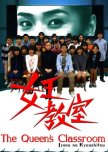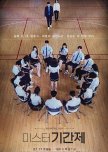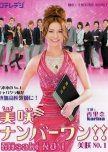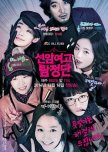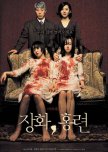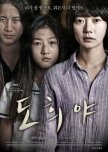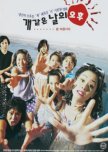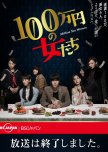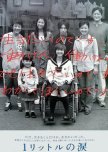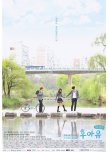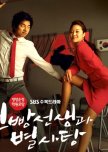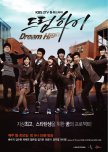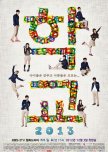 Kim Sae Ron to resume activities after two years of self-reflection
Kim Sae Ron to resume activities after two years of self-reflection - Français
- Русский
- English
- magyar / magyar nyelv
- Titre original: 여왕의교실
- Aussi connu sous le nom de: Yeowangui Gyoshil
- Scénariste: Kim Won Seok, Kim Eun Hee
- Réalisateur: Lee Dong Yoon
- Genres: Jeunesse, Drame
Où regarder The Queen's Classroom
Subscription (sub)
Distribution et équipes
- Go Hyun Jung Rôle principal
- Seo Shin Ae Rôle principal
- Chun Bo Geun Rôle principal
- Kim Hyang Gi Rôle principal
- Kim Sae Ron Rôle principal
- Lee Young Yoo Rôle principal
Critiques

Cette critique peut contenir des spoilers
@ mobbing, friendship, class culture and reflecting moral behavior among 6th grade pupils. Great!
"The Queen's Classroom" is a dramaturgically fascinating story about kids at a South Korean elementary school, shortly before their transition to middle school. The young actors are fantastic. Likewise the adults. At the same time, it is a nuanced, clever study of bullying from 2013. I appreciate this series very much because it not only shows THAT there are enormous social problems with an increasingly traumatizing marginalization of young students, but also how/that the school, i.e. the teachers, can contribute in a creative, constructive, pedagogically valuable way, and thus counteract the trend. For this reason alone, "The Queen's Classroom" is worth seeing. In addition, the KDrama tells a wonderful story about the idea of friendship - about how the mere concept and label 'friendship' becomes a real, three-dimensional relationship with a solid grounding. Fabulous.The unique approach is a focus on the age between elementary and middle school - a phase that is crucial in the development of personality, e.g. for the cognitive development with regard to the moral assessment of situations, the ability to change perspective and a differentiated understanding of moral values. Eventually, the moral assessment of mobbing/bullying is the crucial first step in order to seriously counteract the ominous trend. This aspect is a characteristic problem in South Korean schools. (See side note below.)
In the case of "The Queen's Classroom", the homeroom teacher sets important impulses for the personal processes of individual pupils and the class as a whole with quite idiosyncratic, (of course also dramaturgically effective), provocative pedagogical methods. The aim is to use paradoxical intervention in order to trigger more profound emotional and cognitive processes, so that the students can move from the sometimes naive surface of their beliefs to their true, genuine core. On this basis only can they then stand their by all means noble, idealistic convictions powerfully and authentically against adverse circumstances. Personal processes can often be a bit painful, as is the case here. However, the result is quite spectacular for the individuals and for the class as a whole, too. It could/should be something like this or something similar, it HAS to be if the increasing trend of bullying in schools is to change.
Chapeau! "The Queen's Classroom" is boldly leading the way as a small but mighty pioneer in the KDrama world. To be fair, the KDrama is based on a Japanese production. Since the social problem is similar there, it is not surprising. In any case, the Korean remake didn't do any harm... Despite all the emotional seriousness, it's a great pleasure to accompany the kids on their bumpy road.
---------------------------------------
SIDE NOTE: --- Wang-ta - Bullying in a collectivistic society, like South Korea ---
While 'mobbing', strictly speaking, refers to psychological terror or physical violence by a group, 'bullying' describes the harassment itself, regardless of how many people take part in it. However, the choice of term does not change the fact that far too many students are involved - be it as victims, as perpetrators or as spectators/witnesses. This is an international phenomenon, with more or less extreme manifestations. There is peculiarity in South Korea, though: collectivism (vs. Western individualism). When the welfare of the collective has the highest priority, it means that the interests of the individual are subordinated to those of the associated social group - be it family, work, school, class, club, friends, etc. Peer pressure also exists in individualistic Societies, true enough, but in collectivism it has an even stronger impact. This should not be underestimated when dealing with the topic of mobbing/bullying.
'Wang-ta' is a specific, common South Korean slang term that is used in connection with and in dealing with a person who is not part of the group. One becomes an outsider very quickly, wearing the wrong clothes, having the wrong interests or preferences, belonging to the wrong group or to no group, having poor, stigmatized or less influential parents, living in the wrong family constellation or only achieving bad grades. However, this label commonly implies (in collectivist society) that it socially 'is allowed' to devalue and harass this person for being an outsider. When group norms are thus strong, such exclusion based on appearance, lack of achievement, special preferences, etc. can have particularly fatal consequences. Those experiencing 'Wang-ta' first hand, may lack the chance of getting rid of this label again.
- Those who 'choose' the victim are hardly aware of any guilt, since they are convinced, that they are rightly criticizing a deviation from the set norm.
- The other peers will thus avoid the stigmatized pupil and assume that there is something to it, so that the label (and exclusion) is justified.
- And those labeled ´wang-ta´ will only withdraw even further, ashamed of their 'apparent' lack, and feel even more inferior, than they might already do.
Empirical studies in 1998 ff with pupils from European or American countries (with individualistic socialization) showed, that in 85 percent of bullying cases peers were involved as bystanders. Of those, only 11 percent eventually intervened. Unfortunately, I don't have any comparable South Korean numbers, neither from then nor from today. However, I probably don't lean too far out of the window when I suspect that there are significantly less, who would actively intervene.
In the course of further international studies it was possible to prove that intervention by peers is, however, an essential first step towards change. Active intervention on-site in the middle of the situation triggers a (moral) debate among the peers about the situation in the first place. As long as there are only passive, tolerating bystanders, the act is socially approved and its justification defacto confirmed.
There are South Korean studies that show: although the majority of the pupils interviewed do not like bullying, at the same time they also believe that it is inevitable. In fact, they assume, that the victims in general deserve to be punished because of their (self-inflicted) being an outsider.
The peer group has the greatest influence during the school years from late elementary school to high school. At the same time, this is the phase in which generosity in dealing with diversity can and must be learned as an essential social value. If such a value is not socially recognized at that time, then young people will not be able to integrate it into their further lives, let alone apply it. This is the painful crux of the issue of "wang-ta" in South Korean schools (or later in the workplace): generosity in dealing with diversity has no tradition, no culture, no socially recognized value on the peninsula. If you want to change the school bullying trend, then you have to start here. I.e. as a teacher in elementary and middle school, opening up spaces for experience with tolerance and thus creating the opportunity for a new culture of social interaction. A confident class culture that explicitly acknowledges diversity, that socially and openly and explicitly questions wang-ta as a social option, can form the fertile breeding ground for fundamental societal changes that leave more room for individuality. In the face of an ever-approaching, globally networked world, this is becoming increasingly necessary in order to create the personal and social balancing act of a hybrid between traditional and global, between collectivistic and individualistic.
Cet avis était-il utile?

Cet avis était-il utile?

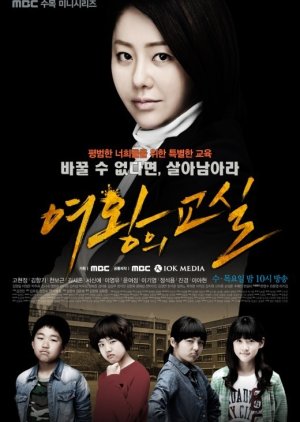







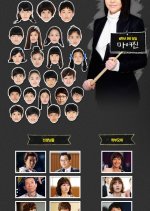
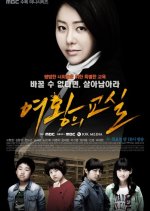




 1
1